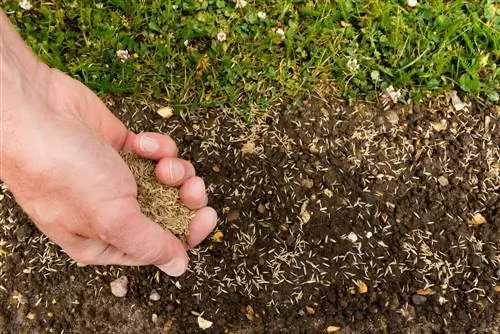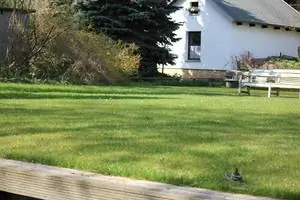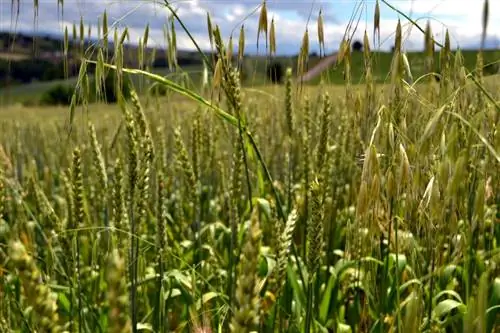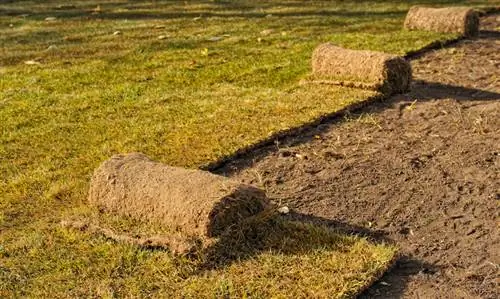- Author admin [email protected].
- Public 2023-12-16 16:46.
- Last modified 2025-01-23 11:22.
Laying turf is the more convenient and quicker method, but you save some costs when sowing. To make the extra effort pay off, you should wait for the right time and prepare the ground well.
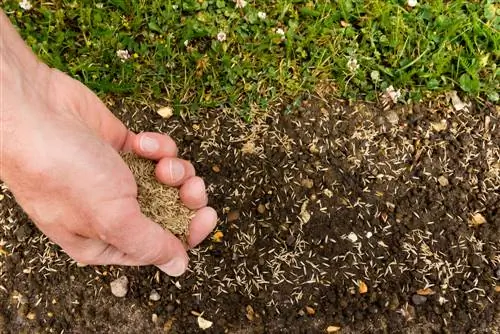
When and how should you sow lawn seeds?
Lawn seeds should ideally be sown between April and May or August and September at a minimum temperature of 10 degrees. Prepare the soil by loosening it, removing weeds, collecting stones and improving it with sand. After a week of rest, scatter the seeds, work them in with a rake and roll.
Time
Lawn seeds can be sown all year round. However, you need a minimum temperature of ten degrees for successful germination. The ideal period with optimal soil conditions is from April to May. In June the thermometer is already rising into the unfavorable range, so the water needs of the seedlings must not be ignored. If you ensure consistent watering in summer, the seeds will germinate easily during this time. From August to September the conditions between precipitation and temperature become more favorable again.
Preparations
Thoroughly loosen the area and remove root weeds. The work can be carried out with a hoe or electric helpers (€139.00 on Amazon). Collect larger stones from the substrate and improve clay and loamy soils with building sand. For a ten meter area you can count on one cubic meter of sand. Smooth out the soil with a wide wooden rake to create a level surface. The soil is lightly compacted with a hand roller.
Sowing
After the ground preparation is complete, give the future lawn some rest. Allow the substrate to settle for a week. Choose an overcast and windless day so that the grass seeds are neither blown away by the wind nor dried out by the sun when they are scattered.
Procedure:
- Put seeds with sand in a bucket and mix well
- Sprinkle the mixture widely by hand
- Gritters ensure even distribution
- Work the seeds into longitudinal and transverse lines with the rake
- Roll the sowing area again
Special features
If the soil is very clayey and heavy, it makes sense to then apply a thin layer of turf soil. A fine potting soil serves as an alternative cover so that the substrate does not dry out and become crusty. Rolling is no longer necessary. Ensure regular watering, four times a day for about ten minutes in dry weather. After seven to 21 days, the grass seeds will have sprouted. Reseeding is possible at any time to fill gaps.

